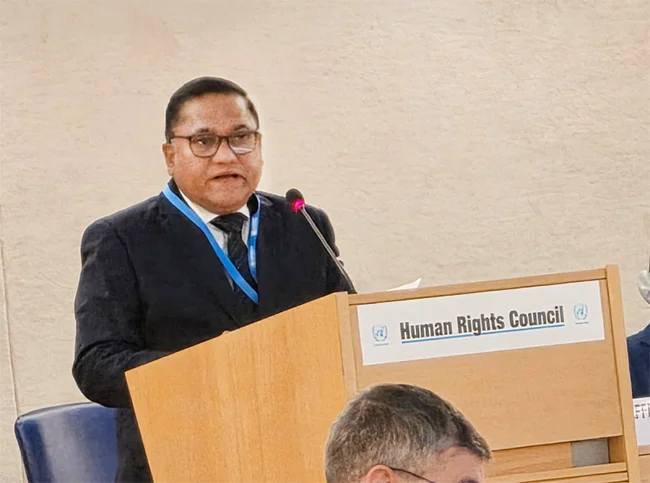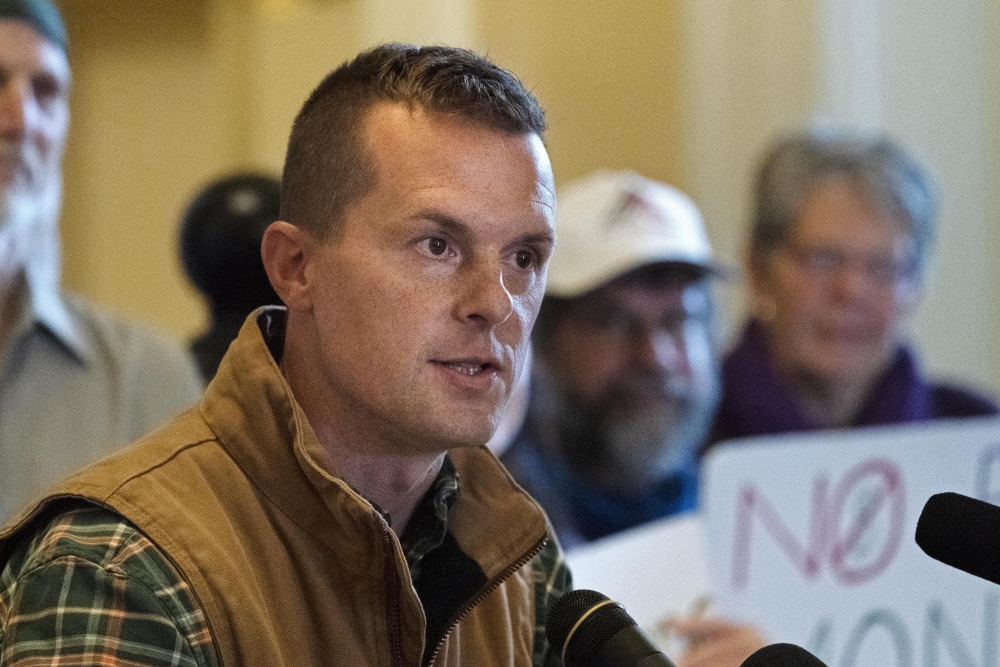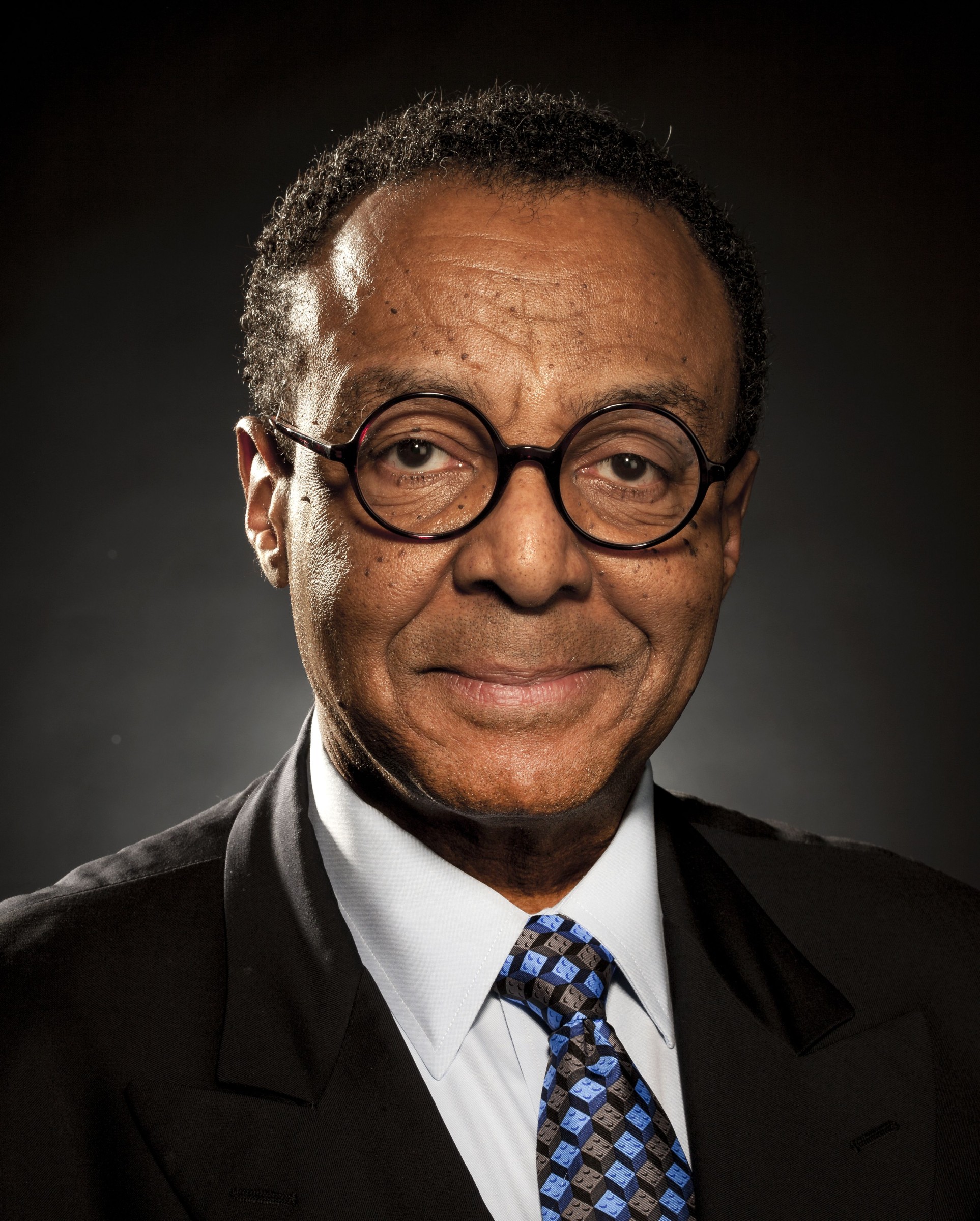
By Professor G. L. Peiris D.
Phil. (Oxford), Ph. D.

(Sri Lanka); Rhodes Scholar, Quondam Visiting Fellow of the Universities of Oxford, Cambridge and London; Former Vice-Chancellor and Emeritus Professor of Law of the University of Colombo. I. The Domestic and International Setting The establishment of a Truth and Reconciliation Commission is a matter of lively interest across our society at this time.
Developments a few days ago at the international level make this issue immediately relevant to the national interest of Sri Lanka. The Minister of Foreign Affairs, Mr. Vijitha Herath, in his address at the 58th Session of the Human Rights Commission in Geneva in February this year, expressed interest in “the contours of a strong truth and reconciliation framework” and committed his government to “strengthening the work” in this field.
Current preoccupation with this concept has both a domestic and an international impetus. Within the country, the overwhelming confidence placed by the people of the North and East, as part of an Islandwide avalanche, in the current National People Power administration, impels the Government to focus, as a matter of priority, on national healing and reconciliation. Beyond our shores, the expectation is equally urgent.
The United Nations Human Rights Council, over the last decade, has adopted no fewer than 6 Resolutions on Sri Lanka. The pivotal Resolution, co-sponsored by Sri Lanka in 2015, called for a Commission for Truth, Justice, Reconciliation and Non-Recurrence. Subsequent Resolutions, expressing concern over lack of progress and the need for international accountability, introduced a new – and potentially hazardous – dimension.
This consisted of the creation of a uniquely intrusive mechanism to gather and analyse evidence relating to Sri Lanka as a launching pad for further action in international tribunals. Against the backdrop of these initiatives, a series of legislative measures have been taken in Sri Lanka – principally the enactment of the Office of Missing Persons Act of 2016, the Office for Reparations Act of 2018 and the Office of National Unity and Reconciliation Act of 2024. However, a hiatus remains with regard to the overarching mechanism of a Truth and Reconciliation Commission.
In attempting to complete the edifice, it is natural that policy makers in Sri Lanka should seek to derive assistance from the experience of South Africa, the home of probably the best-known Commission of this kind in the world. Inadequately and superficially researched, the proposed Sri Lankan legislation, published in the Gazette of 29 December 2023, suffers by comparison with legislation in other countries: it is marred by glaring omissions, and reflects shallowness of understanding of the aspirations which undergird successful instruments of reconciliation in our time. II.
The South African Experience Compared The overlapping and contrasting features of Sri Lankan and South African legislation warrant close analysis. (a) Territorial Application There is a crucial difference in this regard. The mandate in South Africa embraces the whole nation without qualification (Preamble and section 3 of Act No.
34 of 1995). By contrast, the proposed mandate in Sri Lanka is operative throughout the Island, but only where the atrocities in question “were caused in the course of, or reasonably connected to, or consequent to the conflict which took place in the Northern and Eastern Provinces during the period 1983 to 2009, or its aftermath” (section 12(i)). This is a limitation which cannot but affect the completeness of the Commission’s work.
For instance, among the Commission’s powers is that of applying to a Magistrate “to excavate sites of suspected graves or mass graves and to act as observers at such excavations or exhumations” (section 13 (2c)). This is relevant also to areas outside the Northern and Eastern Provinces, and curtailment of the Commission’s mandate detracts from the overall balance and value of its work. (b) Structural Framework The South African legislation envisages 3 Committees specifically established alongside the Commission – the Committee on Human Rights Violations, the Committee on Amnesty and the Committee on Reparation and Rehabilitation.
Each of these Committees has a statutory mandate and function, the role of each being clearly defined in relation to the Commission. The Sri Lankan Bill is much less precise and clear-cut.The corresponding provision empowers the Commission to appoint panels consisting of not less than 3 members, the members being assigned to panels by the Chairperson of the Commission (section 7(2)).
Unlike in South Africa, there is no indication of either the number of panels, or the subject matter entrusted to each panel. A tighter conceptual scheme, with explicit definition of identity and scope, is desirable at this conjuncture. (c) Reconciliation and the Judiciary Investigation which the Commission in Sri Lanka is authorised to undertake encompasses a wide range of activity including “extrajudicial killings, assassinations and mass murders” (section 12(g)(i)), “acts of torture” (section 12(g)(ii)) and “abduction, hostage taking and enforced disappearances” (section 12(g)(iv)).
These are grave crimes in respect of which proceedings are instituted before the regular courts. In this event, should judicial proceedings, of a civil or criminal nature, be suspended until conclusion of the Commission’s investigations, or vice versa, or should they take place concurrently? This is a matter of obvious practical importance which receives detailed consideration in South Africa, but not at all in Sri Lanka. For instance, where the person seeking amnesty before the relevant Committee in South Africa has a civil action in court pending against him, he may request suppression of the proceedings pending disposal of the application before the Committee (section 19(6)).
The court may, after hearing all relevant parties, accede to this request. Similarly, a criminal action may be postponed in consultation with the Attorney-General of the relevant Province. These provisions serve the salutary purpose of averting the risk of conflicting orders by the courts and a Committee of the Commission in simultaneous proceedings.
The Sri Lankan Bill fails to make any provision against this unacceptable contingency. (d) Protection and Compellability Discovery of truth requires the compulsory attendance of witnesses and the production of evidence before the Commission or its delegate. There is a the equally critical need, in subsequent proceedings, to protect witnesses against incrimination by testimony obtained through compulsion.
These are competing objectives which need to be reconciled equitably. This is achieved by the South African legislation: a person will be compelled to answer or produce evidentiary material having the potential to incriminate him, only if the Commission is satisfied that this course of action is “reasonable, necessary and justifiable” (section 31(2)). Moreover, the vital proviso is attached that the incriminating answer or evidence is inadmissible in criminal proceedings against the person providing it.
This is a satisfactory result. The position in Sri Lanka is quite otherwise. There is provision for the Commission to summon any person or to procure material (section 13(t) and (u)).
This exists side by side with provision empowering the Attorney-General “to institute criminal proceedings in respect of any offence based on material collected in the course of an investigation by the Commission” (section 16(2)). Vulnerability is enhanced by the removal of protection conferred by the Evidence Ordinance (section 13(y)). In stark contrast with the position in South Africa, there is singular absence of any provision against self-incrimination in Sri Lanka.
(e) Amnesty The basic purpose of Truth and Reconciliation Commissions around the world is to enable victims to come to terms with a deeply scarred past and to face the future with dignity and self-assurance. This is the gist of the Greek concept of Katharsis, or purging of the soul. Through full and candid disclosure, involving unburdening and relief, comes the expiation of guilt.
This is the context in which the idea of amnesty occupies a central place in the scheme of reconciliation. The Committee on Amnesty is the centrepiece of South African legislation. The primacy of its function is underlined by the provision that “No decision, or the process of arriving at such a decision, of the Committee on Amnesty shall be reviewed by the Commission” (section 5(e)).
The status of this Committee is unique, standing as it does apart from, and indeed above, the other Committees. An application for amnesty succeeds in South Africa if there is genuine contrition manifested in complete disclosure of all relevant facts (section 20(i)). Sri Lankan law takes an entirely different course.
Although the proposed Bill postulates, as one of the main objectives of the Commission “providing the people of Sri Lanka with a platform for truth telling” (section 12(d)), no provision whatever is made for conferment of amnesty in consequence of uninhibited disclosure. At the core of the law, there is a policy contradiction, with practical implications. III.
Political Will Apart from these infirmities, cumulatively worrying, there is a negative factor of far greater importance. When the draft legislation in Sri Lanka was published in January 2024, the response was less than unreservedly enthusiastic. This was mainly because of lingering doubts about the strength of political will underpinning this initiative.
By no means the initial overture, this was yet another step in a long and disheartening sequence of events. The Lessons Learnt and Reconciliation Commission, the Udalagama Commission and the Paranagama Commission represented together a sterile endeavour, for well over a decade, to address the salient issues. The Bill impliedly concedes this.
What is of particular significance is the inclusion, in Part VIII of the Bill, of a set of provisions entitled “Implementation of the Commission’s Recommendations”. The key provision requires the setting up of a Monitoring Committee (section 39) consisting of the Secretaries of 5 Ministries and 6 others, to submit to the President every 6 months reports which “shall include the reasons for non-implementation” (section 40(9)) by relevant entities. This is hardly likely to engender a high threshold of confidence.
A critical component of political will is commitment to community participation. This was much in evidence in South Africa even before Nelson Mandela’s accession to the Presidency. In my academic career, during visits to the University of the Witwatersrand and the University of Cape Town on lecture tours, I observed at first hand, the sustained efforts by leaders of South African academia to convince the corporate sector that structural change is the preferable alternative to unbridled anarchy.
As Minister of Justice, Ethnic Affairs and National Integration in the Government of President Chandrika Kumaratunga, I interacted closely with my counterparts,Dullah Omar, Minister of Justice and Mandela’s personal lawyer and Valli Moosa, Minister of Constitutional Affairs, who even used pictorial images, rather than the printed word, to convey the central message of reconciliation to the vast mass of the people, especially in the rural hinterland. This was very much the wind beneath the wings, and supplied the thrust for intense community involvement. IV.
Role of an Icon Rising above all these considerations is a circumstance which was brought home to me vividly during my participation, as Minister of Foreign Affairs, in the Commonwealth Summit in Kigali, Rwanda, in 2022. On the sidelines of this event, I had the benefit of a discussion with my South African counterpart, Ms. Naledi Pandor, at the time Minister of International Relations and Cooperation.
She shared with me her perspective that, whatever the South African process accomplished, was in considerable measure attributable to the towering stature of Archbishop Desmond Tutu who enjoyed remarkable prestige across the nation. An emblematic figure as the visible symbol of the process is, therefore, vital, the ideal choice probably being a personality bereft of a prominent political profile. Qualities of leadership are, in practice, of even greater value than the structural characteristics of the Commission.
V. Restorative Justice The abiding inspiration of reconciliation mechanisms arises from the idea of restorative, as opposed to retributive, justice; but this concept has intrinsic limits. In the South African case, pride of place was given to sincere truth telling which would overcome hatred and the primordial instinct for revenge.
The vehicle for giving effect to this was amnesty. Not infrequently, however, this opportunity was spurned. Despite the personal intervention of Mandela, former State President P.
W. Botha was adamant in his refusal to appear before the Commission which he denounced as “a fierce unforgiving assault” on Afrikaaners. This sentiment struck a compliant chord in many leaders of the security and military establishment under the apartheid regime.
Among them were General Magnus Malan, former Minister of Defence, and General Johan van der Merwe, former Commissioner of the South African Police. Contemptuous refusal to appear before the Commission led to criminal prosecution. Eugene de Kock, commander of a police death squad, was convicted on multiple counts of murder.
An interesting case is that of Security Branch officer, Joao Rodrigues, who was charged with murder 47 years after the death of anti-apartheid activist, Ahmed Timol, in police custody. When repentance and amnesty failed, criminal responsibility took over. At the heart of the discourse is interplay among the ideas of truth, justice and reconciliation.
Search for the right balance is the perennial dilemma. The basic conflict is between amnesty and accountability. A legitimate criticism of the South African experience is that it tended, on occasion, to give disproportionate attention to the former at the expense of the latter.
It did happen that grave crimes went unpunished, leaving victims, after the trauma of reliving the past, profoundly unfulfilled. Diverse cultures offer an array of choices. In Argentina, the power to grant amnesty was withheld from the Commission.
In Colombia, disclosure resulted not in total exoneration but in mitigation of sentence. In Chile, prosecutions were feasible only after a prolonged interval since the dismantling of Augusto Pinochet’s dictatorship. In Peru, individual sanctions were studiedly relegated to major economic and societal transformation in the wake of the ravaging conflict with Sendero Luminoso (Shining Path).
An eclectic approach, affording the fullest scope for selection and imaginative adaptation, is the way forward. There is no size that fits all..















